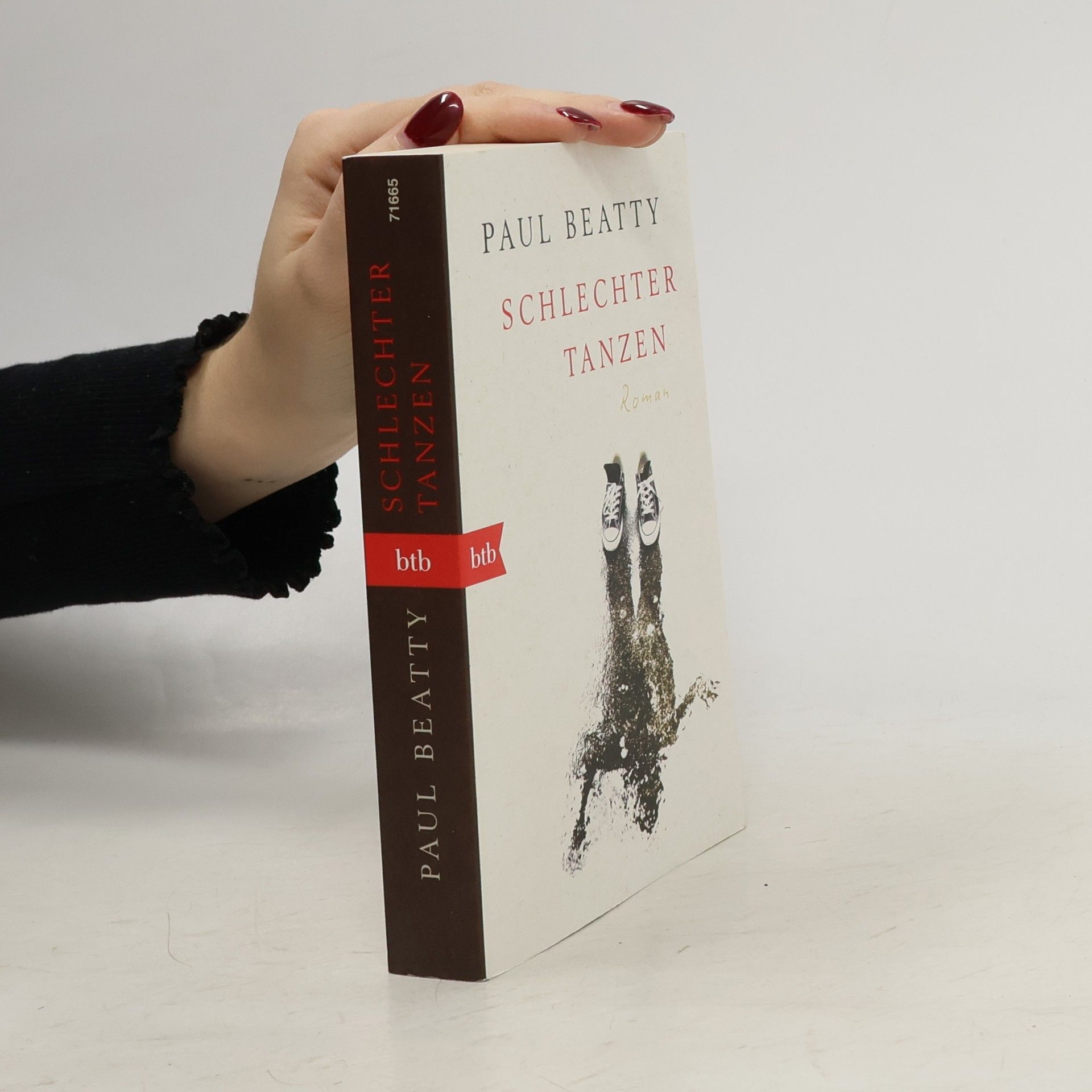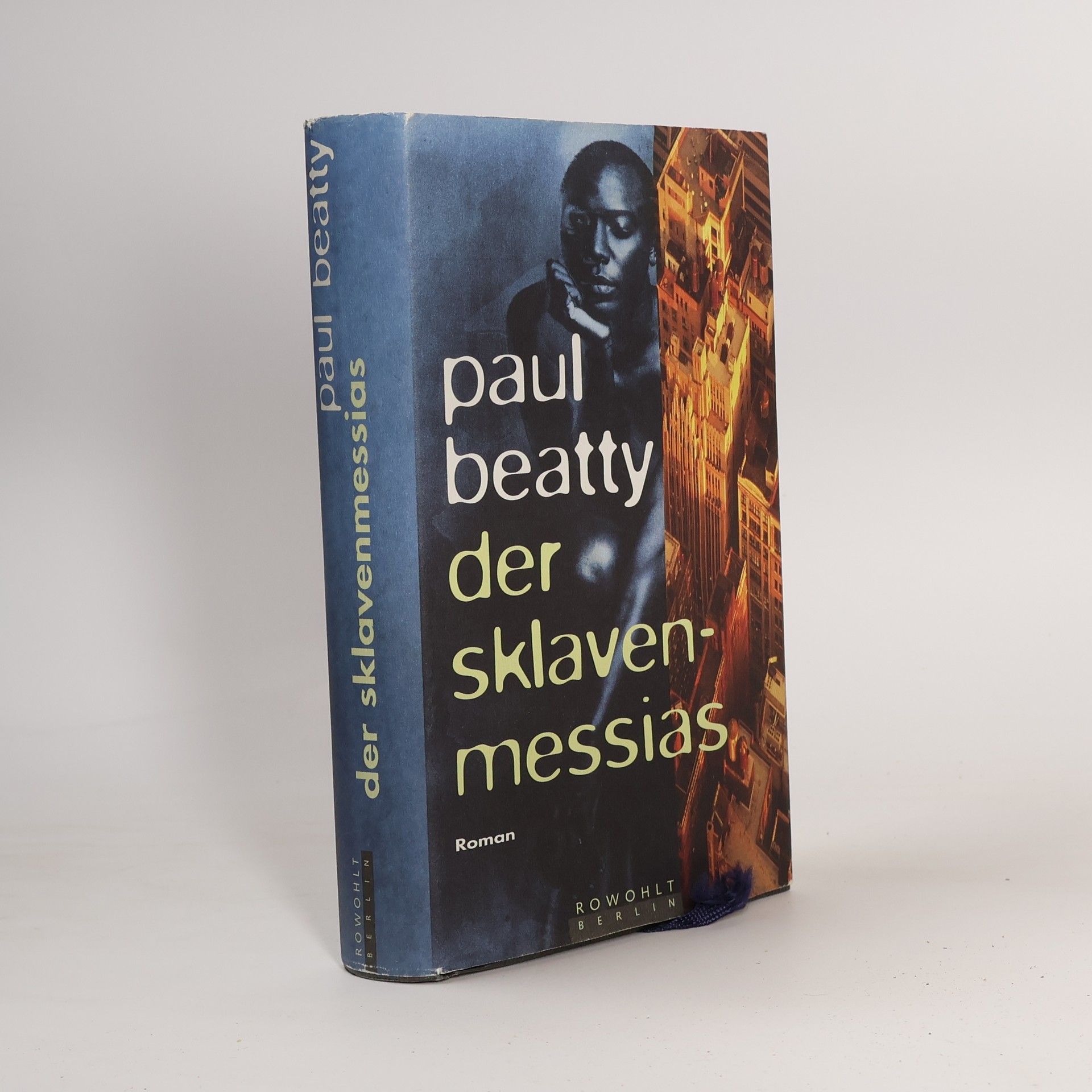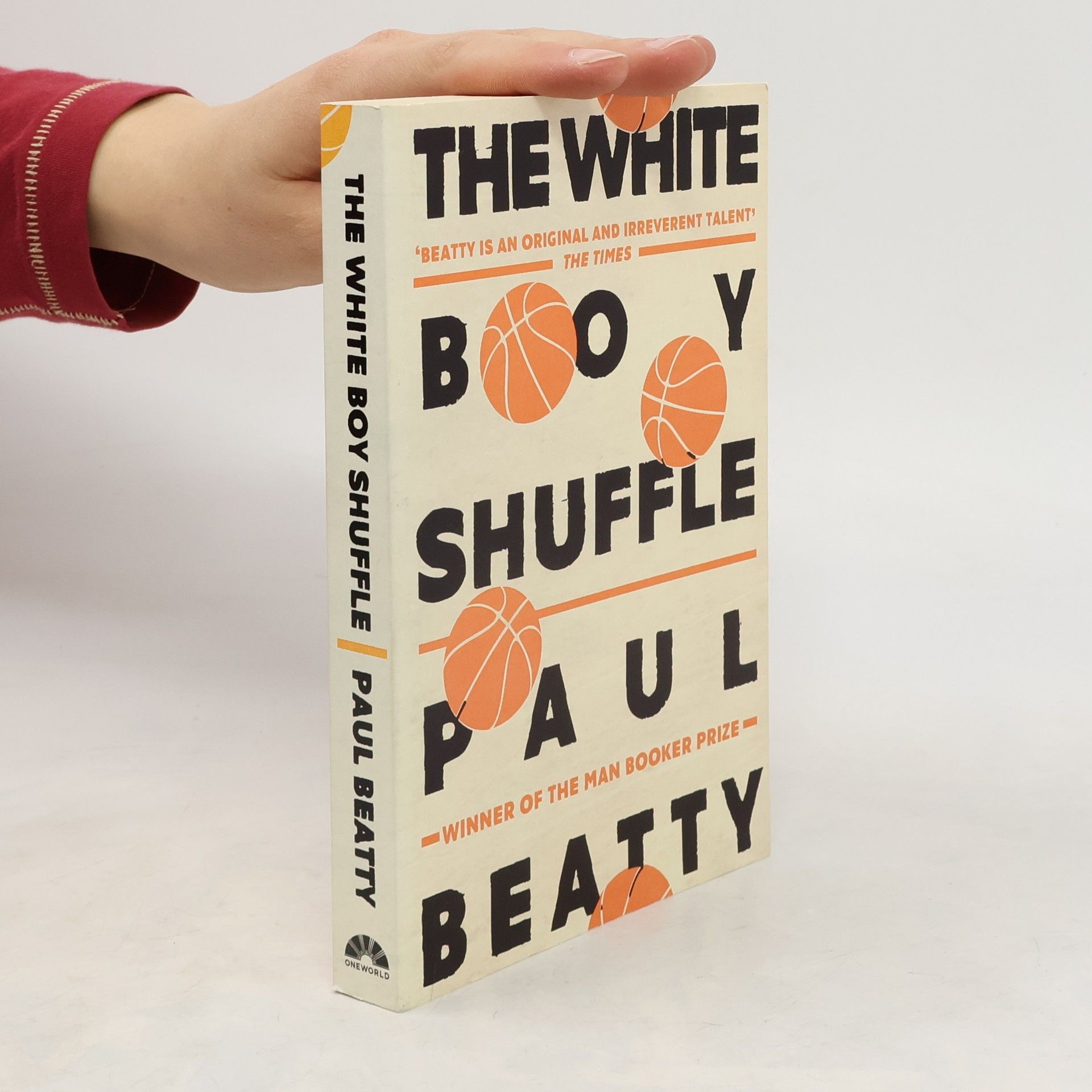Circles of Deceit
- 352bladzijden
- 13 uur lezen
A detective story set in Britain in the 1840s
Paul Beatty is een hedendaagse Afro-Amerikaanse auteur die bekend staat om zijn scherpe satirische blik. Zijn werk buigt zich over de complexiteit van ras en identiteit, geleverd met een uniek ritme en scherpe intelligentie. Beatty verkent de Amerikaanse ervaring door middel van een literaire traditie die zowel diep kritisch als immens vermakelijk is. Zijn stijl wordt vaak omschreven als wild, geestig en compromisloos, wat hem een krachtige stem in de hedendaagse literatuur maakt.







A detective story set in Britain in the 1840s
The electrifying debut novel from 2016 Man Booker Prize winner Paul Beatty
A Book of the Decade, 2010-2020 (Independent) 'Outrageous, hilarious and profound.' Simon Schama, Financial Times 'The longer you stare at Beatty's pages, the smarter you'll get.' Guardian 'The most badass first 100 pages of an American novel I've read.' New York Times A biting satire about a young man's isolated upbringing and the race trial that sends him to the Supreme Court, The Sellout showcases a comic genius at the top of his game. Born in Dickens on the southern outskirts of Los Angeles, the narrator of The Sellout spent his childhood as the subject in his father's racially charged psychological studies. He is told that his father's work will lead to a memoir that will solve their financial woes. But when his father is killed in a drive-by shooting, he discovers there never was a memoir. All that's left is a bill for a drive-through funeral. What's more, Dickens has literally been wiped off the map to save California from further embarrassment. Fuelled by despair, the narrator sets out to right this wrong with the most outrageous action conceivable: reinstating slavery and segregating the local high school, which lands him in the Supreme Court. In his trademark absurdist style, which has the uncanny ability to make readers want to both laugh and cry, The Sellout is an outrageous and outrageously entertaining indictment of our time.
A Novel
Ninteen year-old winston 'Tuffy' Foshay - 320 pounds, new father to a baby boy he greets cheerfully with 'What up little nigger?', player-king of a motley crew in Spanish Harlem - is looking for a purpose in life, for the answer to his wife Yolanda's question, 'Winston, what you gonna do?' After narrowly escaping death - by fainting - in a drug deal gone bad, Tuff knows he needs to make some decisions, and soon, with or without the help of his tight Harlem circle - his scheming, disabled best friend Fariq, aka Smush; his Beat-poet Black Panther father, Clifford; Inez, the Marxist revolutionary who raised him, and his bewildered mentor from the Big Brother programme, the hapless African-American Rabbi, Specer Jefferson. So when Inez offers him $20, 000 to run for city council, he gamely embarks on one of the most outrageous campaigns in political history, one that changes both his vision of the world and his place in it. Fuelled by the ferocious wit and courage that made his debut one of the most talked about and passionately reviewed of the season, Tuff see Beatty's manic energy taken to new heights of verbal dazzle.
Paul Beatty präsentiert in seinem ersten Roman die Geschichte von Gunnar Kaufman, einem schwarzen Jungen, der in einem weißen Umfeld aufwächst und mit Identitätsproblemen kämpft. Der satirische Entwicklungsroman erzählt, wie Gunnar als Dichter und Basketballspieler Erfolg hat und afroamerikanische Geschichte neu definiert, untermalt von verschiedenen Musikstilen.
Roman
Gunnar Kaufman, ein etwas linkischer schwarzer Jugendlicher, zieht mit seiner Familie vom schicken und multikulturellen Santa Monica nach Hillside, einem schwarzen Vorort von Los Angeles. Schlimmer konnte es nicht kommen, denn Gunnar liest Kant, Hegel und Homer, tanzt wie ein Weißer und hat von den Ghettoregeln keine Ahnung. Wie Gunnar dennoch den Durchbruch zum Dichter, Basketballstar und schließlich Erlöser der gesamten afroamerikanischen Kultur schafft - das erzählt Paul Beatty frech, virtuos und in schnellen, wechselnden Rhythmen. „Schlechter tanzen“ ist ein abgründig komischer Entwicklungsroman und Kultbuch einer Generation.
DJ Darky hat ein phonographisches Gedächtnis. Nachdem er in Los Angeles den perfekten Beat kreiert hat, begibt er sich auf die Spuren des legendären, in Ostdeutschland abgetauchten Jazz-Avantgardisten Charles Stone, genannt Schwa, seinem musikalischen und spirituellen Doppelgänger. Die Suche führt ihn nach Berlin zur Zeit des Mauerfalls, wo er eine Stelle als Jukebox-Sommelier in der Bar „Slumberland“ antritt. Er entdeckt seine sexuelle Macht, lernt den Musikgeschmack eines Neonazis kennen und vergleicht die Situation der Ostdeutschen nach der Wiedervereinigung mit der der Afroamerikaner nach dem amerikanischen Bürgerkrieg. Paul Beatty spielt virtuos mit den Verhältnissen zwischen den Geschlechtern, zwischen Schwarz und Weiß, Ost und West, Jazz und Techno, und mischt daraus einen mitreißenden neuen Sound.